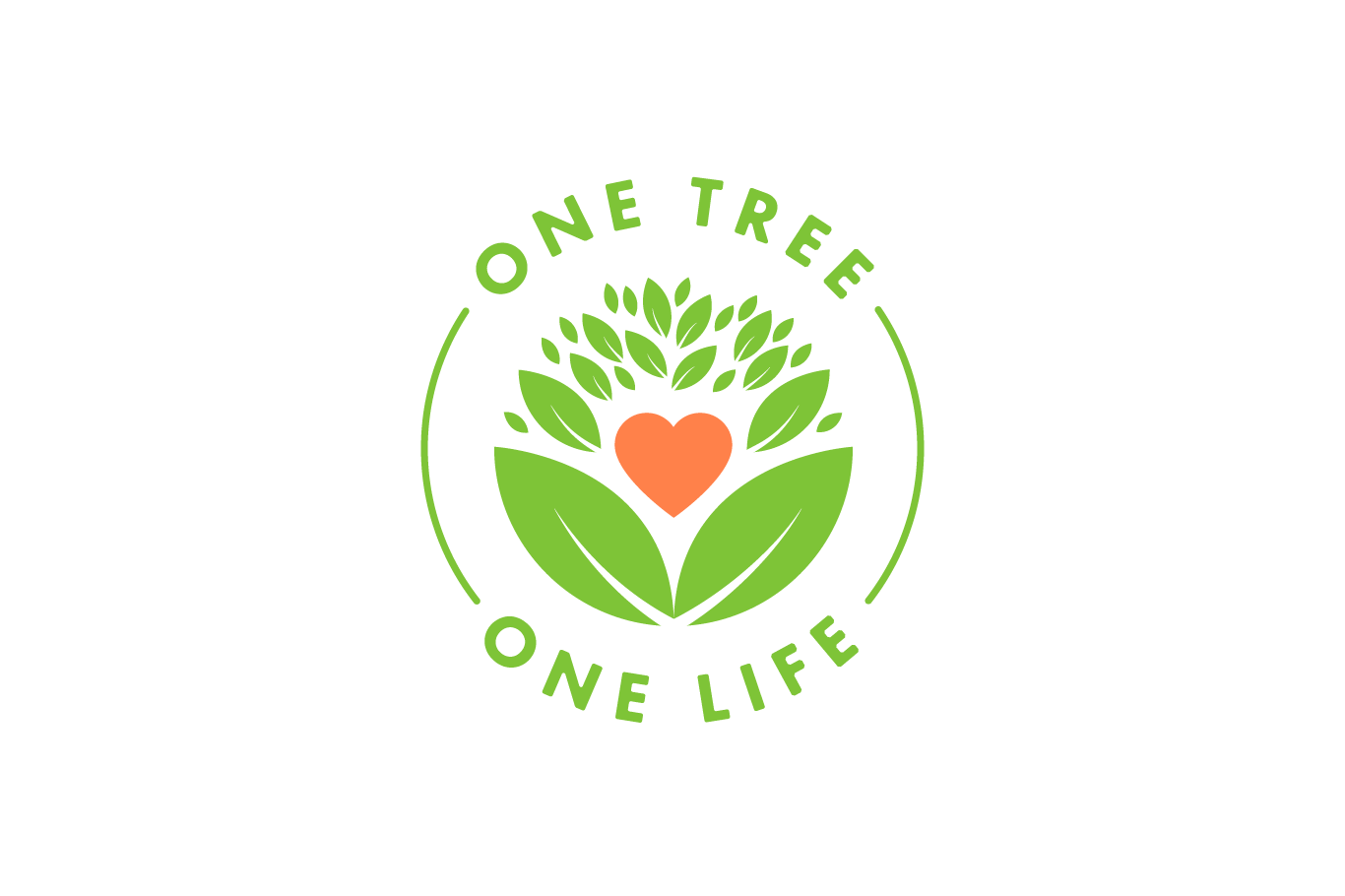








The best time to plant a tree is now!
When you notify your claims online and have your vehicle repaired through Zurich Help Point, you protect the environment twice over: Zurich Insurance Company Ltd organizes repairs through its network using the most modern resource-saving methods and plants on your behalf—as part of the One-Tree-One-Life-Campaign of Borneo Orangutan Survival Association (BOS) Schweiz—a tree seedling in Borneo, Indonesia.
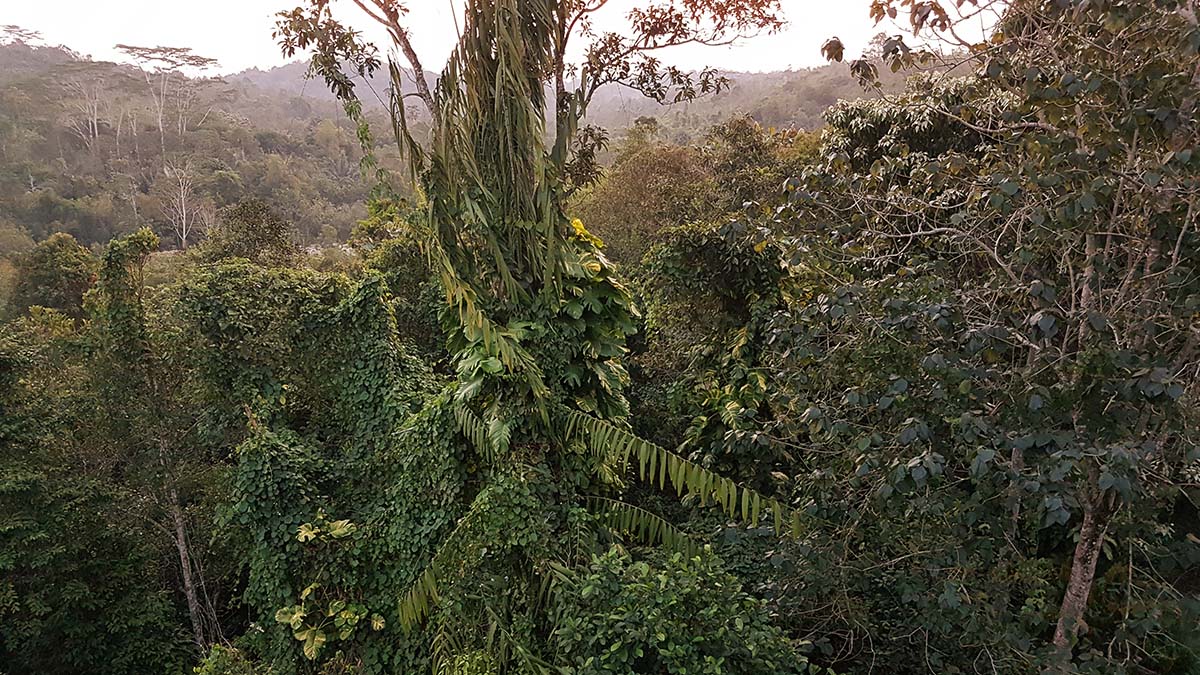
Sustainability is a central focus of the work of Zurich Insurance Company Ltd. That is why they’re working together with BOS Schweiz to reforest the rainforests.
You can find out more about this partnership for climate protection below.
Would you like to take action yourself? Then donate or gift trees now and see how our joint commitment takes root in Borneo!
The One-Tree-One-Life Campaign
The Indonesian rainforests are amongst the most biodiverse in the world, they provide oxygen for us and regulate our global climate. Nevertheless, 1.3 million hectares of rainforest are destroyed every year in Borneo alone. This is one of the highest deforestation rates worldwide. Day after day, the habitat of orangutans and other critically endangered species is vanishing. Oftentimes, forest is slashed and burnt, resulting in annual forest and peat fires that—in addition to the loss of biodiversity—accelerate climate change and endanger the health of millions of people.
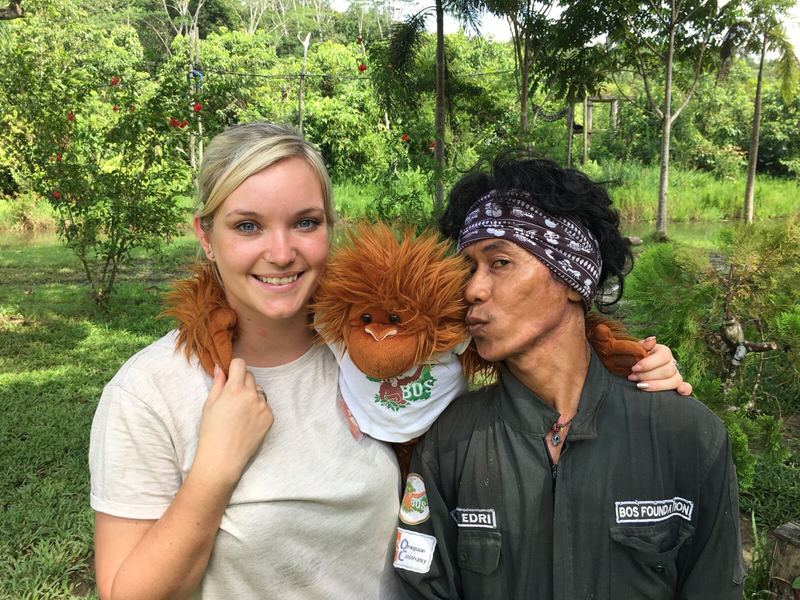 © BOS Schweiz
© BOS Schweiz
Through the One-Tree-One-Life-Campaign, BOS Schweiz therefore supports the reforestation of destroyed rainforest areas. The tree-planting is done by volunteers as well as local communities and employees of BOS Foundation in Borneo, Indonesia.
Since 2017, the One-Tree-One-Life-Campaign bundles the reforestation and forest conservation efforts of BOS Schweiz. The aim of this campaign is to raise as many funds as possible for the BOS reforestation projects in East-Kalimantan (Samboja Lestari) and Central-Kalimantan (in the Mawas area).
BOS Schweiz
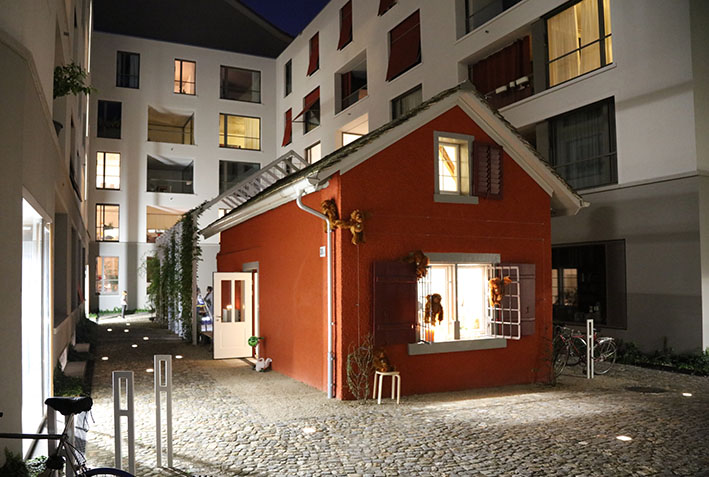 © Philipp Hofmann
© Philipp Hofmann
Borneo Orangutan Survival Association (BOS) Schweiz is a registered non-profit organization headquartered in Zurich, Switzerland. Together with its international partner organizations—above all BOS Foundation in Indonesia—BOS Schweiz aims to permanently protect the last orangutans and preserve their habitat, the tropical rainforest in Borneo. For this purpose, BOS maintains what is currently the largest primate rescue and rehabilitation program in the world: in two rescue and rehabilitation centers in Borneo, injured, traumatized and orphaned orangutans receive urgent medical treatment and are—up to 10 years—prepared for a life in freedom. Since 1991, BOS has rescued over 3000 orangutans. Since 2012, almost 500 have been released back into the wild in protected forest areas and about 400 are currently waiting to be released. Closely linked to these activities are reforestation projects, initiatives to promote sustainable development in Indonesia (microcredit projects, health initiatives and environmental education) as well as educational and public relations work in Switzerland.
The Situation in Borneo
Over thousands of years, the rainforests of Borneo have grown into some of the most biodiverse ecosystems on earth. But today and within minutes, giant rainforest trees are cut, and huge areas are burnt to satisfy our growing hunger for coal, tropical wood or palm oil. Huge monoculture plantations emerge where orangutans and many other endangered species used to live.
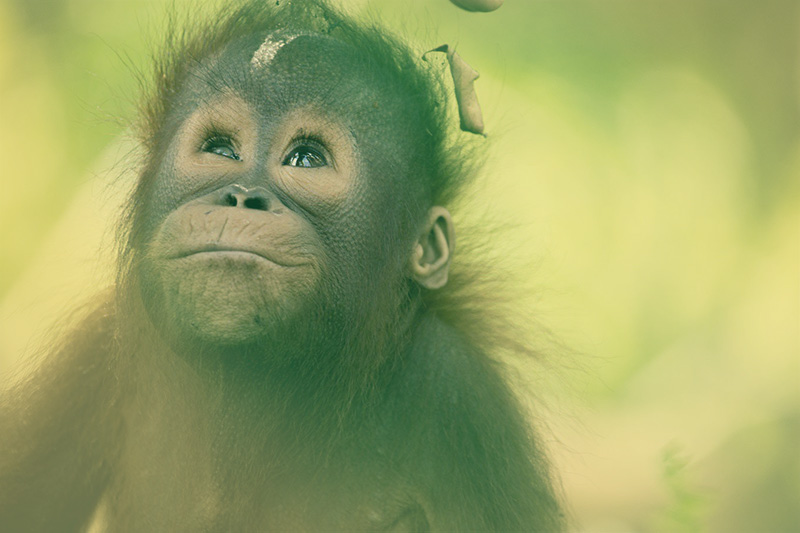 © Björn Vaughn, BPI
© Björn Vaughn, BPI
In the past 20 years, the orangutans have lost about two thirds of their natural habitat. Wild populations have therefore shrunk by more than 80 percent in the past 20 to 30 years. Since 2016, the International Union on the Conservation of Nature (IUCN) lists all three types of orangutans as “critically endangered.” Because orangutans do fulfill a vital role within the rainforest, they are also referred to as an umbrella or key species. If they become extinct, entire ecosystems depending on them will vanish as well.
In addition, deforestation and the associated annual peat and forest fires accelerate global climate change. Furthermore, the fires are causing respiratory diseases and therefore threaten the lives and health of millions of people and animals all over the region.
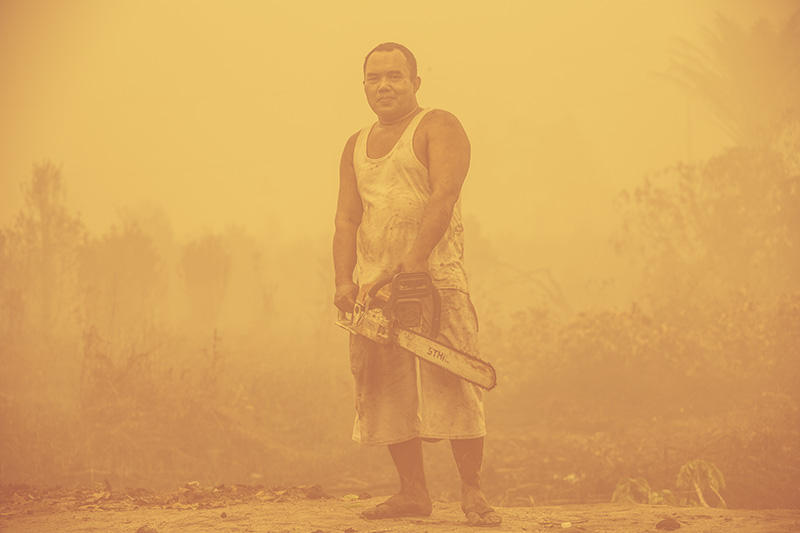 © Björn Vaughn, BPI
© Björn Vaughn, BPI
More than 900,000 hectares of forest and land burned across the country in summer 2019 alone. 44 percent of the affected land were valuable peat forests which store millions of tons of carbon. If peat forests are burnt or dried out, they emit four to 40 times more CO2 than forest fires in other tropical areas. For this reason, the World Bank estimates that peat and forest fires in Indonesia emitted almost twice as much CO2 into the atmosphere in 2019 than the simultaneous fires in the Amazons!
Reforestation in Samboja Lestari, East-Kalimantan
In 2015, 300 hectares of rainforest around the BOS rescue and rehabilitation center in Samboja Lestari also fell victim to the flames. Today and as part of the One-Tree-One-Life-Campaign, BOS Schweiz is replanting this area together with volunteers and employees of BOS Foundation. The seedlings are produced locally and grown in our own tree nurseries. A mix of fruit and timber trees are planted—all endemic and mostly endangered species. Around 220 hectares still need to be replanted in Samboja Lestari.
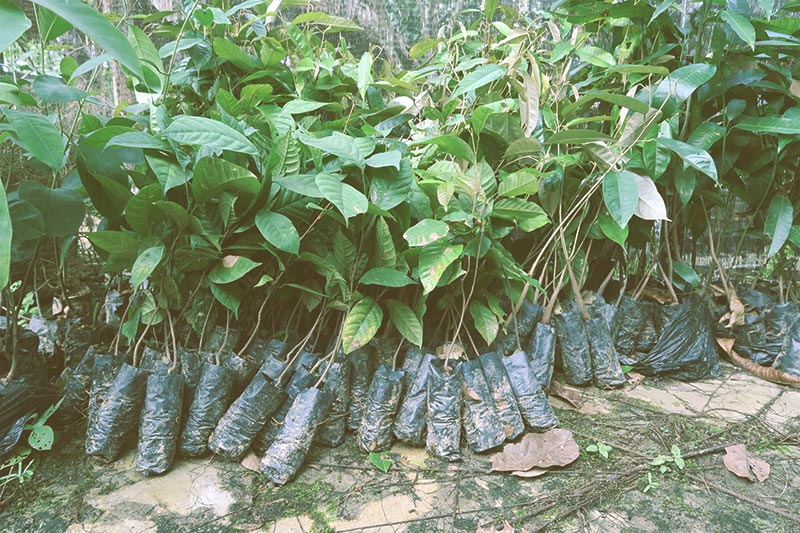 © BOS Schweiz
© BOS Schweiz
The Samboja Lestari forest is not home to a wild orangutan population. Instead, BOS uses the forest to prepare recued but traumatized, injured or orphaned orangutans for a life in the wild. Today, Samboja Lestari is one of the last green islands in the region which needs to be conserved.
Reforestation in the Mawas-Area, Central-Kalimantan
Likewise, it is important to preserve one of the most valuable but heavily affected and degraded peat swamp forests of Indonesia located in the Mawas area.
During the 1990s, Indonesia aimed to fight widespread hunger by establishing a self-sufficient rice production. For that purpose, about 1 million hectares of peat forest were designated for rice cultivation and destroyed. In Borneo alone, 4,000km of drainage canals were created to allow for this agricultural production. The plan did not succeed, and the rice project has been abandoned.
© Björn Vaughn, BPI
Since 2003, BOS Foundation in Indonesia has been responsible for protecting and restoring some of those destroyed areas in the Mawas region. This is critical because the Mawas conservation forest is home to more than 2,500 wild orangutans—one of the largest known wild orangutan populations in the world!
In 2013, Mawas was declared an area of high conservation value. However, illegal logging, poaching as well as wildfires continue to threaten the precious wildlife and its habitat. The former drainage canals facilitate these illegal activities: they are frequently used to enter the conservation area and to transport illegally cut wood and bush meat. In addition, in 2015 and 2019, large forest areas were destroyed by fires. Because peat forests store up to 50 times more carbon than usual rainforests, fires in those areas as well as the drying-out of the peat swamps have a devastating effect on our world climate.
Through the One-Tree-One-Life-Campaign, BOS Schweiz supports two reforestation projects in the Mawas area: the Tuanan Project and the SOS Borneo Project. Both initiatives aim to close drainage channels, to train and equip fire protection teams and to replant burnt and otherwise degraded areas. Seedlings are grown in our own tree nurseries and planted by local communities. Accompanying microcredit projects establish alternative sources of income to stop illegal logging and poaching.
